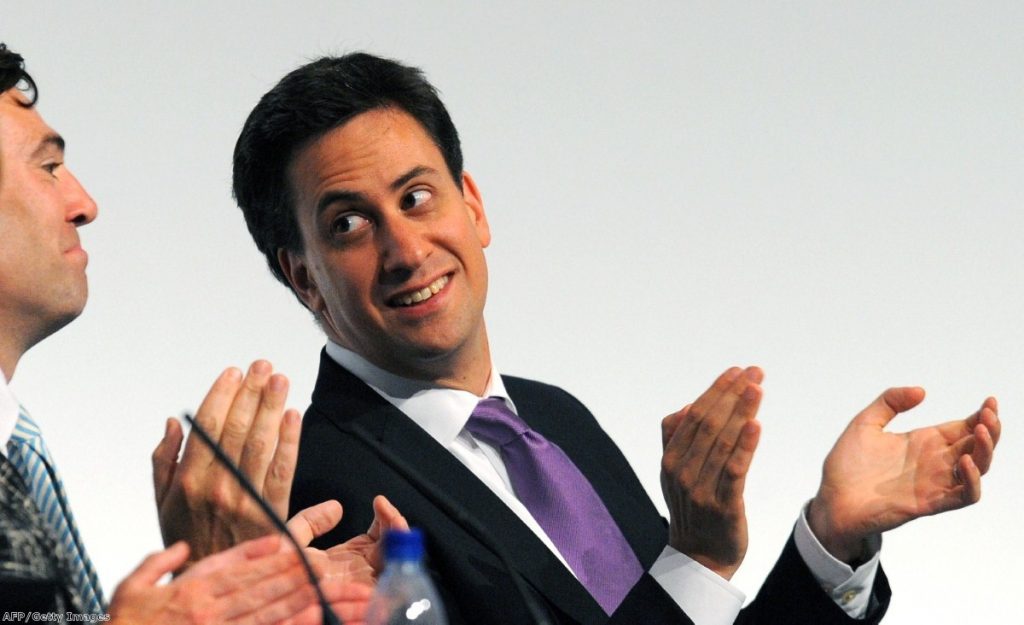Labour Day: Miliband shocks Westminster with 10p tax announcement
Ed Miliband shocked Westminster and addressed concerns about his lack of policies with a keynote speech promising major redistributive tax reforms today.
The Labour leader said he would reintroduce the 10p tax rate scrapped by Gordon Brown and fund the move with a mansion tax on homes worth over £2 million.
"We would put right a mistake made by Gordon Brown and the last Labour government," he said.
"Moving Labour on from the past and putting Labour where it should always have been, on the side of working people."


He added: "When you play your part, when you make your contribution to the economy, you will be rewarded.
"Britain's economic success will be built by the many, not just by a few at the top."
The move corresponds neatly to Miliband's fairness agenda, which demands some measure of redistribution through the tax system, coupled with a 'predistribution' drive which would try to boost wages.
But it is also strategically significant. The policy distances Miliband from the Brown government in which he served by undoing one of its least popular policies.
The 10p tax rate policy was demanded by Tory MP Robert Halfon and yesterday's PMQs suggested David Cameron and George Osborne were weighing up whether to include it in next month's Budget.
Its use by Labour suggests Miliband and Ed Balls are intent on stealing the Conservative's embryonic focus on 'strivers'. If, as suspected, the Tories were intending to use it, Miliband's move today will seriously complicate Osborne's preparation for the Budget.
By pledging a mansion tax Miliband is also stealing a key Liberal Democrat policy which has been regularly shot down by their Tory coalition partners.
Tellingly, today's speech was the first time the Labour leader has spoken on the economy without the presence of Balls, although the shadow chancellor was present for the Q&A session.
The announcement was greeted positively by commentators on the left and the right, but there were concerns around its affordability.
Liberal Democrats forecast revenue of £2 billion from a mansion tax, which would mainly hit wealthy parts of London and the south-east.
Labour says the £2 billion would let the government apply the 10p band up to £1,000.
But a House of Commons library assessment suggests the 10p rate would cost £6 billion if it was created between the personal allowance (£9,440) and £12,000.
A Downing Street spokesperson said: "This is a stunning admission of economic incompetence – that their decision in government to scrap the 10p tax rate hurt millions of working families. People will never trust Labour again.
"Now Labour’s new homes tax would mean government snoopers in every home to revalue your house for council tax, meaning council tax rises for millions."
The speech was one of several keynote addresses made today by senior Labour figures.
Jon Cruddas, who is leading Labour's policy review, spoke at an event organised by centre-left think tank IPPR, during which he outlined Labour's alternative to the Conservative's much-maligned 'big society' agenda.
Finally, shadow defence secretary Jim Murphy made a speech on foreign intervention in which he reflected on the decade since the war in Iraq.
All three speeches are intended to correct the impression of an opposition party without fleshed out policy proposals.
Meanwhile, in a little-reported meeting an organisation subcommittee of the National Executive Committee of the party is expected to announce which seats will use all-women shortlists to pick their party candidates in the 2015 general election.
The move will be crucial to candidates hoping to run and may also revive the debate on the ethics of the all-women shortlists.
Labour does not have a particularly good relationship with all-women shortlists. In 2010, Harriet Harman's husband, Jack Dromey, was selected to contest a safe seat where only women candidates were expected to run.









